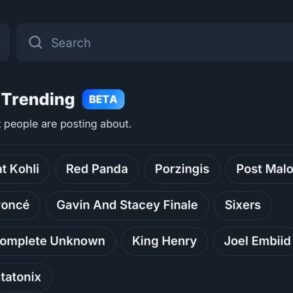Schools dealing with the negative effects of social media on students – the endless scrolling, distraction from homework, spreading rumors and bullying – are fighting back.
Alarmed by what they see as a youth mental health crisis, two dozen schools and districts in Western New York are joining the federal litigation against social media companies seeking changes to the platforms to make them less addictive. They also are looking for restitution for the expenses incurred dealing with mental health issues among students.

“We know that social media is a significant contributing factor to some of the mental health issues that we have among our school-age populations,” said Hamburg Central Superintendent Michael Cornell.
“We know that social media is a significant contributing factor to some of the mental health issues that we have among our school-age populations, because of the way it causes people to interact with each other,” said Hamburg Superintendent Michael Cornell, whose district joined the lawsuit.
“I think what you’re seeing is these school districts across the country are taking a stance against these companies to require them to make the necessary changes to make their platforms safer,” said William Shinoff of the Frantz Law Group, a California-based personal injury law firm.
People are also reading…
In April 2023, the law firm filed papers in U.S. District Court in San Francisco on behalf of 16 school districts against Meta, TikTok, Snap, YouTube and other social media companies. The litigation accuses the social media companies of designing their products to foster addictive behavior and use algorithms to funnel certain kinds of content to students, encouraging them to spend more time on their platforms.
More than 900 districts have joined the litigation, including 100 from New York State. Hodgson Russ of Buffalo also is representing local districts.
In addition to Hamburg Central School District, other local school districts participating are Alden, Buffalo, Depew, Eden, Grand Island, Kenmore-Town of Tonawanda, Springville-Griffith Institute, Tonawanda, West Seneca and Williamsville. The Erie 2-Chautauqua-Cattaraugus BOCES and Westminster Community Charter School also joined.
Resolutions adopted by the districts indicate that schools “have had to hire additional counselors, develop resources and train staff to handle the burgeoning number of students succumbing to what best can be described as a youth mental health crisis.”
The local districts are not paying any legal costs, but school personnel will gather data for the lawsuit.
The lawsuits accuse the social media companies of engaging in reckless and negligent misconduct, causing a mental health crisis among youth.
Meta said it is working to provide teens safe experiences online, and has developed more than 30 tools and features, including ways to set time limits, age verification technologies and restricting those under 16 from receiving direct messages from people they don’t follow.
“These are complex issues, but we will continue working with experts and listening to parents to develop new tools, features and policies that are effective and meet the needs of teens and their families,” a Meta spokesperson said in an email.
James P. Frantz of the Frantz Law Group said the safeguards put in place by social media companies are not effective.
“The kids are getting right around it, and they’re not doing anything about the change. And the parents cannot control it,” Frantz said.
Surgeon General Dr. Vivek Murthy released an advisory last year that said while “social media may have benefits for some children and adolescents, there are ample indicators that social media can also have a profound risk of harm to the mental health and well-being of children and adolescents.”
“Social media platforms know that the answer is to structurally correct harmful design features and functions,” said Mitch Prinstein, chief science officer for the American Psychological Association, in a press release on a health advisory on social media use in adolescence. “Most children and adolescents lack the experience, judgment and self-control to manage their behaviors on these platforms, which is why we see over 50% reporting at least one symptom of clinical dependency on social media today.”
Educators have been talking about the mental health crisis in schools for years. Some districts, such as Hamburg, have trained all staff – from administrators to cafeteria workers – to recognize students who need help.
“There is a necessity to go and provide these mental health services to provide greater services to their students, and also educate the students and families on the harms of social media and the safe use of social media,” said Shinoff, the lawyer for the California law firm.
Each district is a separate case, and the first trial is scheduled to begin in the fall of 2025, Shinoff said.
“The social media companies are a clear and present danger to America youth,” Frantz said. “They’re interfering with their classroom work, interfering with their ability to get into college, and then they’re causing them severe emotional distress, and we need to stop that.”





